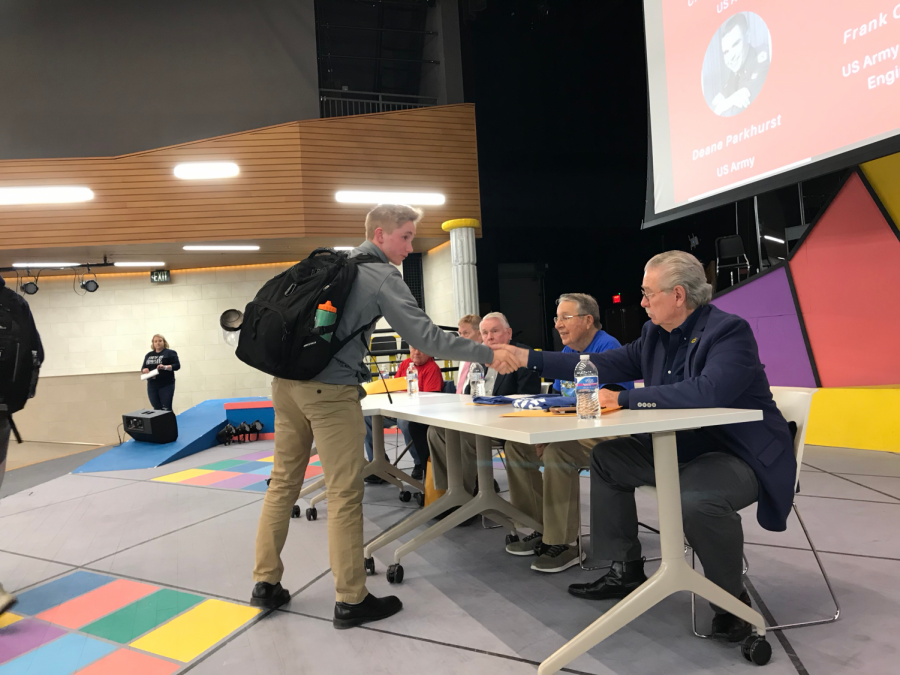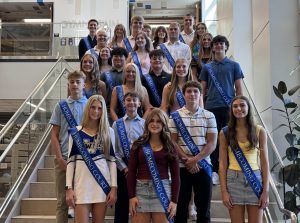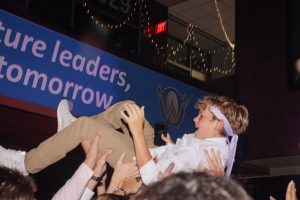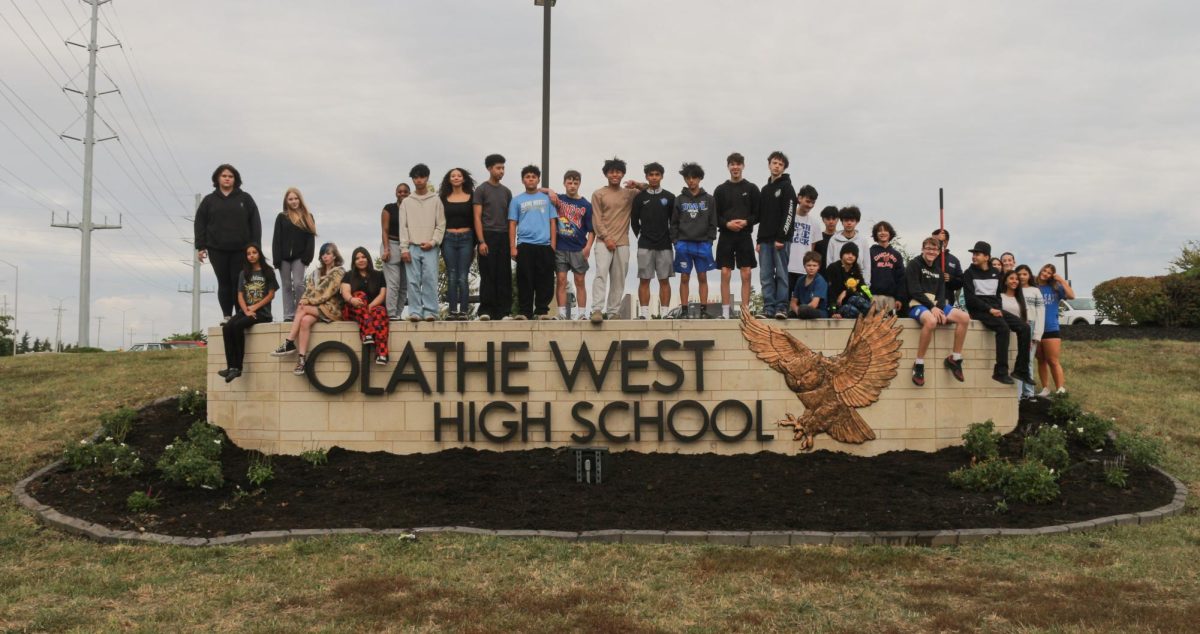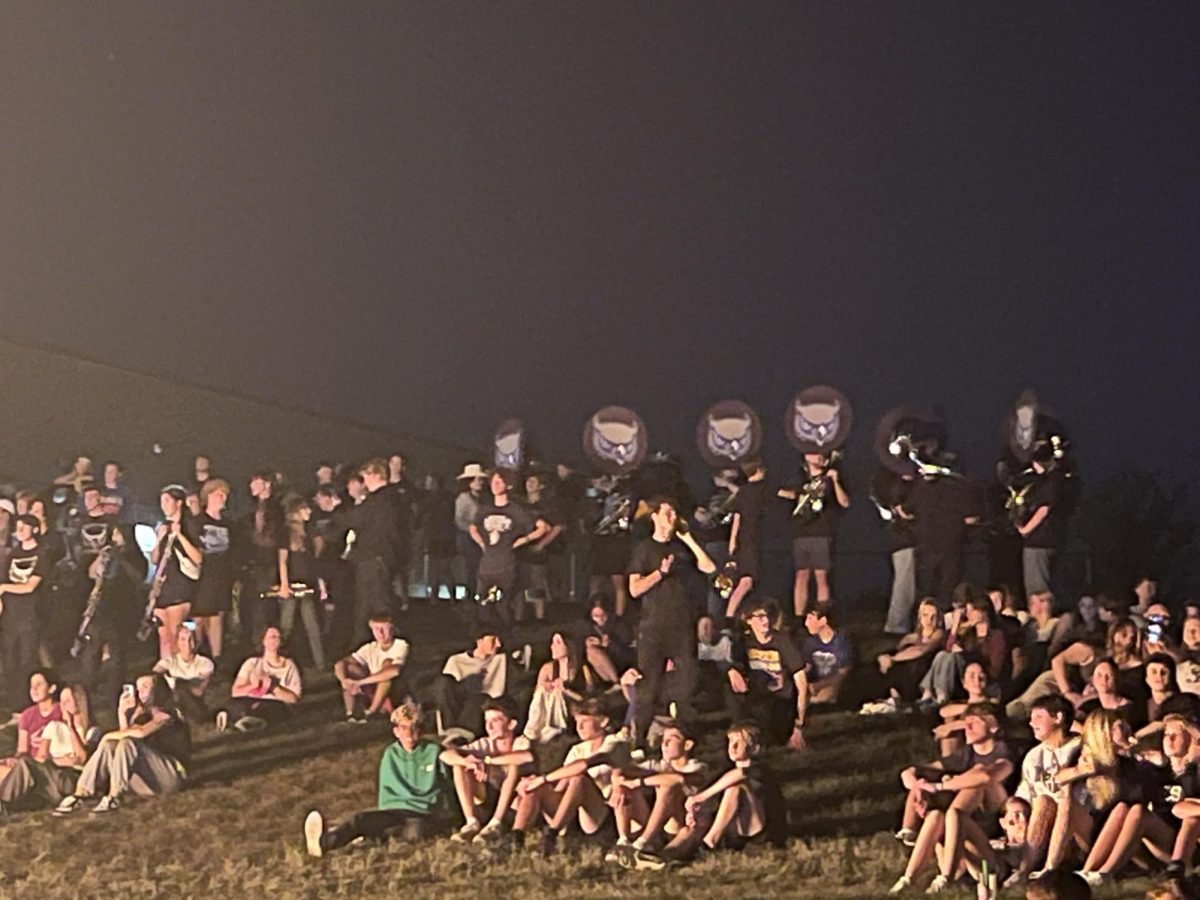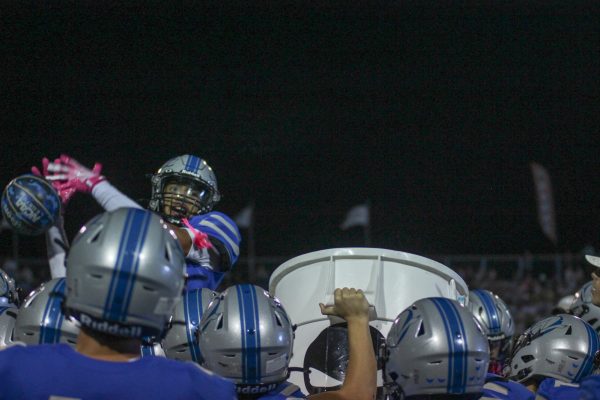Memoirs Of International Veterans
Sophomore Max Roberts shakes hands with Vietnam veteran Ernie Claudel at the end of the veteran’s panel.
December 4, 2019
Recently, veterans came to speak during a special seminar session that gave students insight into the lives of veterans and what it’s like to serve in the military.
“I didn’t hesitate for a second,” veteran Frank Oswald said. “The next day [after enlisting] I was on a plane to Kentucky.”
Frank Oswald was a Vietnam veteran who spoke at the Q&A panel held during seminar on Nov. 14. Oswald served in Germany as an engineer in the Army Corps of Engineering during the Vietnam war.
“I didn’t really have any direction to my life,” Oswald said. “My main objective going into the military was to go to college.”
Along with Oswald were four other veterans who all served either directly in Vietnam or during the duration of the war.
“I wanted to be part of something larger,” said Charles Schneider, a Vietnam veteran who served two tours during the war. “We woke up in the morning if we went to sleep that night. Every day we go out on patrol with our unit, we’d patrol a thousand-meter grid square for an ambush that night.”
For other veterans, going into the military took them from being fresh out of high school to a developed and capable adult.
“I knew I wasn’t really a good student,” said Deane Parkhurst, a Vietnam veteran who was drafted and stationed in New Jersey from 1957 to 1959. “I went from being a know-it-all kid to a responsible adult in two years. It was the best thing that ever happened to me.”
The veterans got to touch on their emotional experiences with the war and, for some of them, being away from home for the first time.
“I was very fortunate that the men and women I served with were long-time veterans,” said George Benigno, a Vietnam draftee who served three years in the war. “The men and women I served with, no matter what base, became my family.”
A very somber question was asked at the session about how to deal with death and loss of a fellow soldier. One veteran gave his own perspective on war and death from his time on the front lines.
“I guess you get the reality of the war when you see the mass numbers of people who die,” Schneider said. “I remember being in Saigon and there were hundreds of caskets being helicoptered out. How do you deal with death? I don’t know. It’s hard to deal with death.”
At the end of the session, veterans were welcomed by a round of applause and cheers by the students. A few students even went up to shake hands with the veterans to thank them for their service to the country.
“When you put on that uniform it changes you,” Schneider said.


